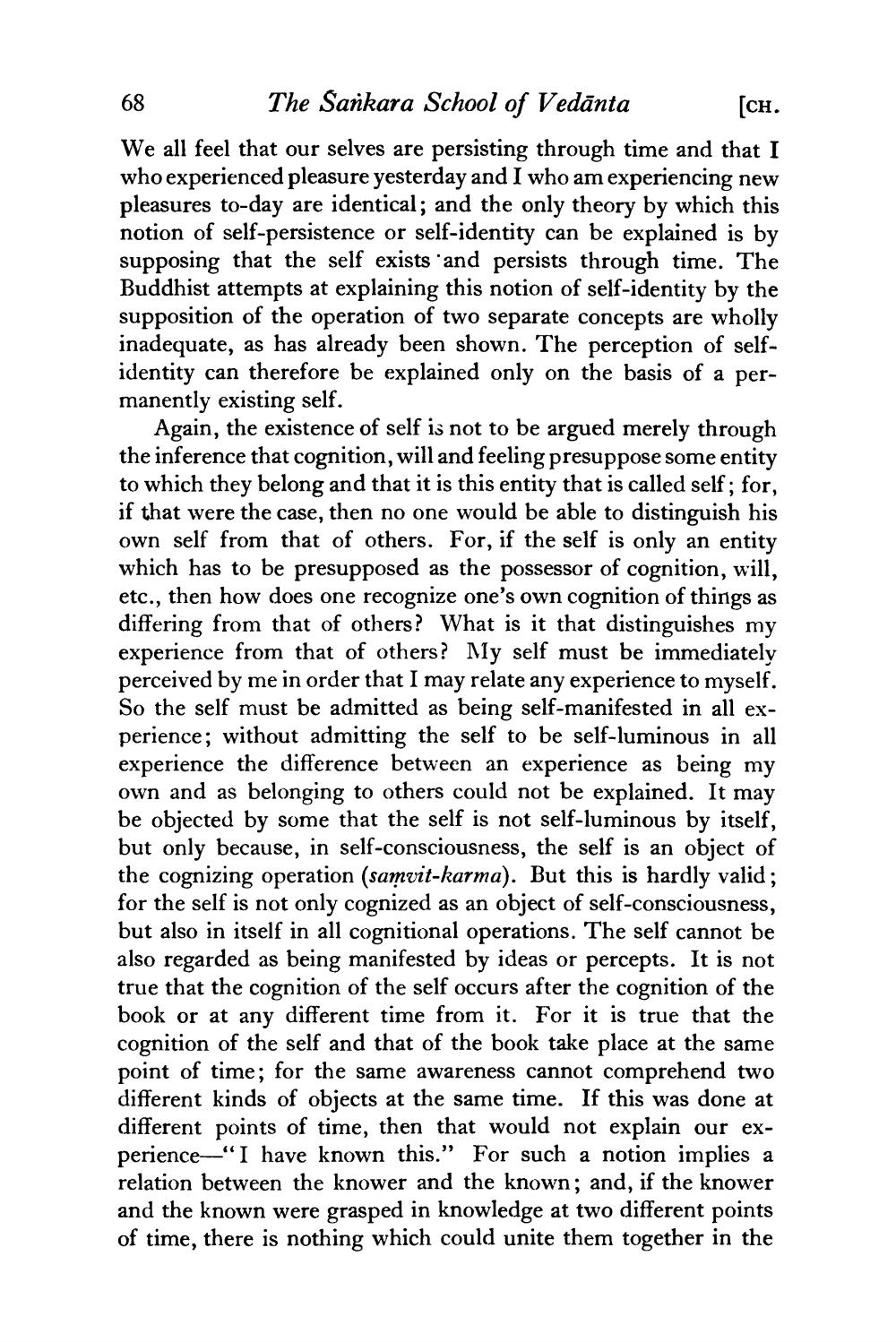________________
68
The Sankara School of Vedanta
[CH.
We all feel that our selves are persisting through time and that I who experienced pleasure yesterday and I who am experiencing new pleasures to-day are identical; and the only theory by which this notion of self-persistence or self-identity can be explained is by supposing that the self exists and persists through time. The Buddhist attempts at explaining this notion of self-identity by the supposition of the operation of two separate concepts are wholly inadequate, as has already been shown. The perception of selfidentity can therefore be explained only on the basis of a permanently existing self.
Again, the existence of self is not to be argued merely through the inference that cognition, will and feeling presuppose some entity to which they belong and that it is this entity that is called self; for, if that were the case, then no one would be able to distinguish his own self from that of others. For, if the self is only an entity which has to be presupposed as the possessor of cognition, will, etc., then how does one recognize one's own cognition of things as differing from that of others? What is it that distinguishes my experience from that of others? My self must be immediately perceived by me in order that I may relate any experience to myself. So the self must be admitted as being self-manifested in all experience; without admitting the self to be self-luminous in all experience the difference between an experience as being my own and as belonging to others could not be explained. It may be objected by some that the self is not self-luminous by itself, but only because, in self-consciousness, the self is an object of the cognizing operation (samvit-karma). But this is hardly valid; for the self is not only cognized as an object of self-consciousness, but also in itself in all cognitional operations. The self cannot be also regarded as being manifested by ideas or percepts. It is not true that the cognition of the self occurs after the cognition of the book or at any different time from it. For it is true that the cognition of the self and that of the book take place at the same point of time; for the same awareness cannot comprehend two different kinds of objects at the same time. If this was done at different points of time, then that would not explain our experience "I have known this." For such a notion implies a relation between the knower and the known; and, if the knower and the known were grasped in knowledge at two different points of time, there is nothing which could unite them together in the




